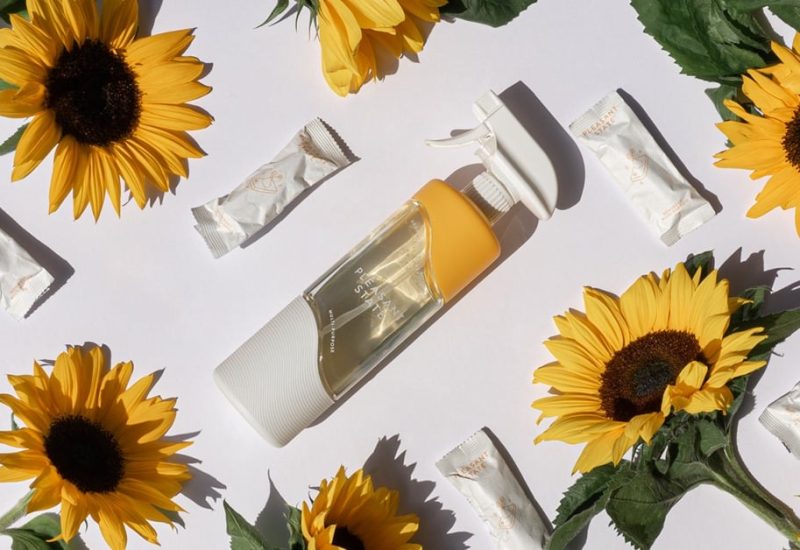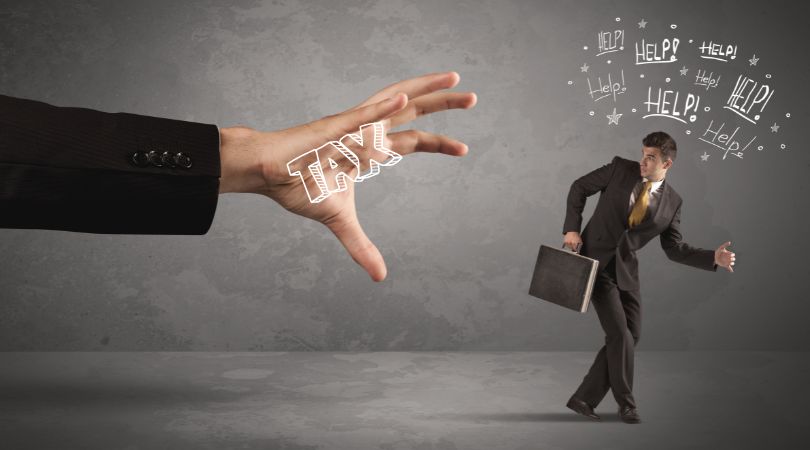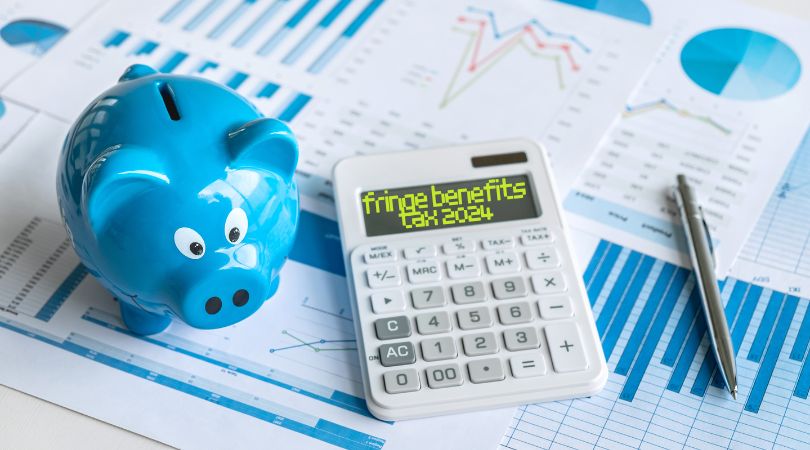In late 2019, after years of struggling with headaches and migraines, Ami began eradicating household products that she suspected may have been the cause. This was anything from cookware and mattresses to cleaning products. One by one she researched and removed items in her home, but still found no release.
She began researching the impact of chemicals and plastics in cleaning products. It was here that she discovered the concept of ‘just add water’. Ami continued to research this concept to reveal that most cleaning products are 97% water.
“People purchase cleaning products that are made up of 97%+ water that they can get from their taps at home. The plastic packaging can contain up to 3% of active carcinogens, endor-sensitisers and halogens and the emissions expelled during transportation of the plastic packaging also contribute to the problem.”
Once this was known we knew there had to be a different model for creating cleaning products. This was the starting block for Pleasant State.
A lean start-up with Big Ambitions
We built the business using lean startup principles. “The key principle is to involve the customer in the design of the product to ensure it solves their problem effectively,” Ami says.
Ami and her team launched the brand and a pre-funding campaign. They used the opportunity, not only to gain capital but to acquire market insight into customer problems. “It was a great way to build a community, gain cash flow and test the market.”
Sourcing a Local Manufacturer
“Setting up manufacturing in Australia was a big challenge.” Finding a local manufacturer was non-negotiable, as keeping production local reduces the impact on the planet. “I refused to believe it could not be done locally,” Ami says.
Ami went down a rabbit warren for months trying to find a manufacturing company that could assist with producing concentrated cleaning products. With grit and determination, she finally found a manufacturer. “I did a call-out on LinkedIn and was introduced to a manufacturer who was producing bottles for a gin distillery.”
With a manufacturer locked in, Ami and the team could now focus on building the business.
People and Planet before Profit
“We aren’t the cheapest and don’t want to be. The ramification of a product that is not sourced or produced through sustainable methods is a great cost to the planet. Our customers know that buying a sustainable product to reduce the impact on the planet comes at a price.”
“Our story is one of hope, optimism and ambition. We went into it without doubt and knew we could build a business in a way that would be right for people and the planet. It was a big, but cool opportunity and I was going to do it – without a doubt. We made it work.”
The COVID pivot and accessing funding
COVID caused a lot of challenges for businesses. But rather than panicking and shutting up shop, Ami took the opportunity to go full-steam ahead. “This is it. We are doing this now. For two weeks, I went hard to get the business to a point where we could create jobs for people.”
Ami had some money from a CCG (Climate Control Group) entity, they were on Job Keeper and worked hard to access capital through grants and funding programs. “Accessing capital as a female-led start-up was an extra barrier. I wish it wasn’t but it was and we can’t ignore that.”
“Getting in front of banks was hard and with grant funding, you have to be earning a certain amount of turnover before you can apply – which is challenging for a start-up. Grants like ‘Boosting Female Founders’ are great but they can take months to process. By that time, it’s too late.”
This is where SRJWW came in. Katrina and the team at our Sunshine Coast office assisted Ami with accessing and organising Research and Development funding to support Pleasant State.
Ami had concerns about the ethics of equity crowdfunding too. “This type of investing opens up investments to people who don’t necessarily know what they are getting into. Accessing venture capital is also costly,” Ami says.
For now, revenue funding is the best option for the business. Ami explains how this works. “A couple of international businesses lend small loans, take a 10 to 12 per cent fee on that money and then deduct revenue on a daily basis. They take a percentage of our daily sales to pay that money back quickly.”
Reaching the highest standard of Environmental and Social Performance
Among all the success of the brand and business, Pleasant State has earned a B Corp Certification. A “B Corp Certification is a designation that a business is meeting high standards of verified performance, accountability and transparency on factors from employee benefits and charitable giving to supply chain practices and input materials.” Source.
“We completed the assessment which included the BCorp body coming in to verify that we meet their exceptionally high standards and requirements. It’s a thorough process and many businesses don’t reach the standards.” Amy continues. “We wanted to build a better business with ethical foundations and a BCorp certification would prove that we are committed to that. We are really proud of our certification and are the only Australian cleaning brand to be BCorp certified.”
From present state to Pleasant State
When asked about the name of the business, Ami explains that after a rigorous branding exercise, Pleasant State was the name that felt right.
“Environmentally conscious people are in a present state working towards a better future, a Pleasant State. Our products help take people from present state to Pleasant State,” says Ami.
SRJWW and Ami’s Business Success
When the business was in the early days, Ami was on the hunt for a new Accountant but had specific ideas of who and what the company would be like.
“I was looking for a firm that was proactive, not reactive. I needed someone who was forward-thinking, strategic and who would make sure we stayed on top of things. I’d visited a number of firms and I didn’t get the sense they could give me that. I wanted a long-term partner that could make a real difference in my business. I found that in SRJWW,” says Ami.
SRJWW wasn’t Ami’s only choice, but we gave her impressive reasons to work with us.
“We use BCorp principles when we look for suppliers. The first thing we look at is if the supplier is local – which SRJWW was. Other criteria we look at include experience and diversity within your team. We look at race, gender and culture to ensure our suppliers are not just experienced but inclusive too. SRJWW has lots of representation for a diverse set of people, particularly women.”
When Ami met with SRJWW’s Principal, Katrina Brennan it was clear that she had found a partner in SRJWW.
“You deliver what you say you’ll deliver and help us find new opportunities through your community,” says Ami.
Pleasant State may be a start-up company but working together we have reached major outcomes in their business
“Exporting the market development grant was a major outcome for us. It’s awesome to have an expert to challenge us and help us come up with new and creative ways of thinking about our business. They’re proactive in anticipating and resolving capital issues and are always pushing the boundaries to make the business better. They really do help people #ImagineBetter.”
If you’re looking for a proactive, strategic accounting firm to partner with your business, reach out to us today and we can work together to #ImagineBetter for your business!



